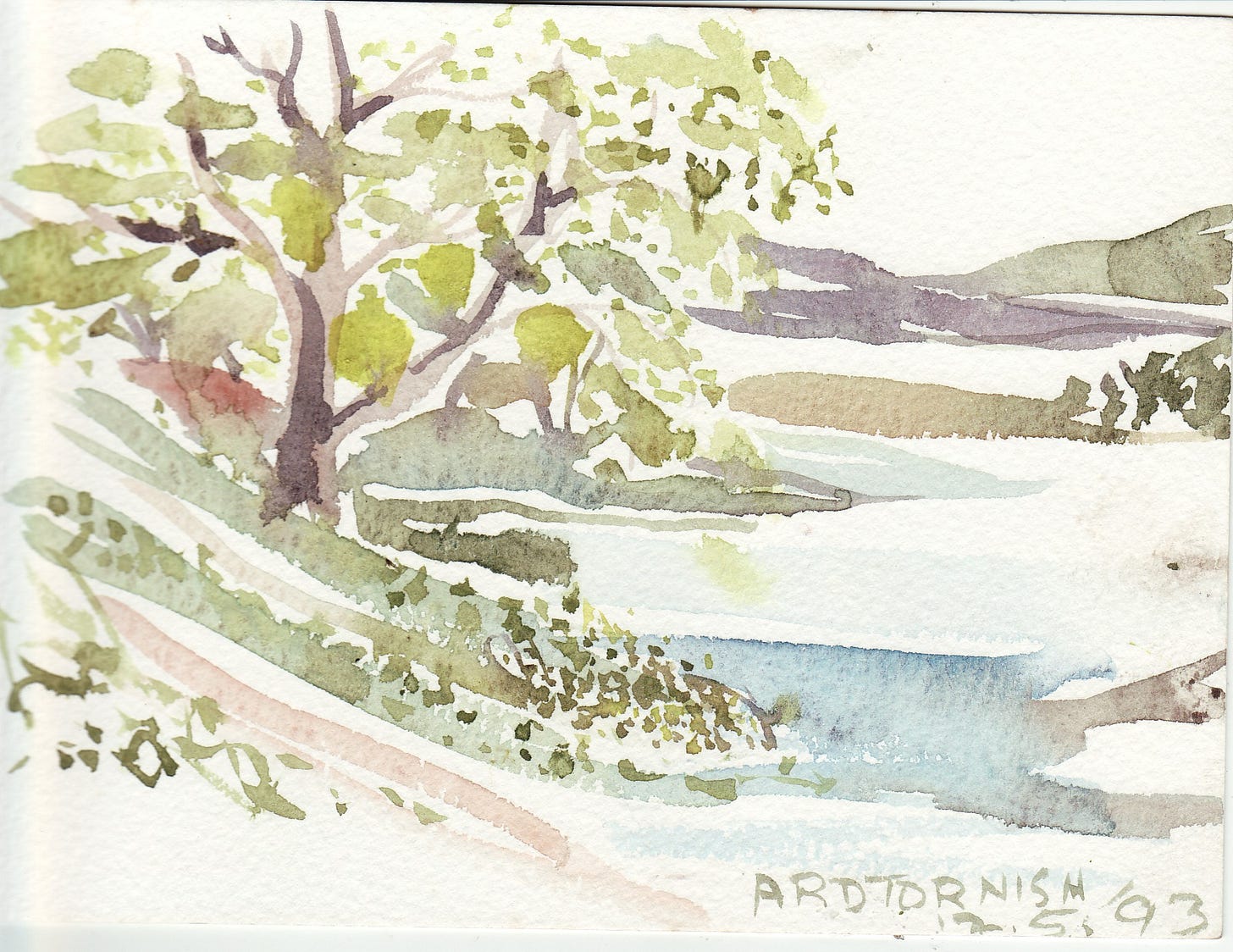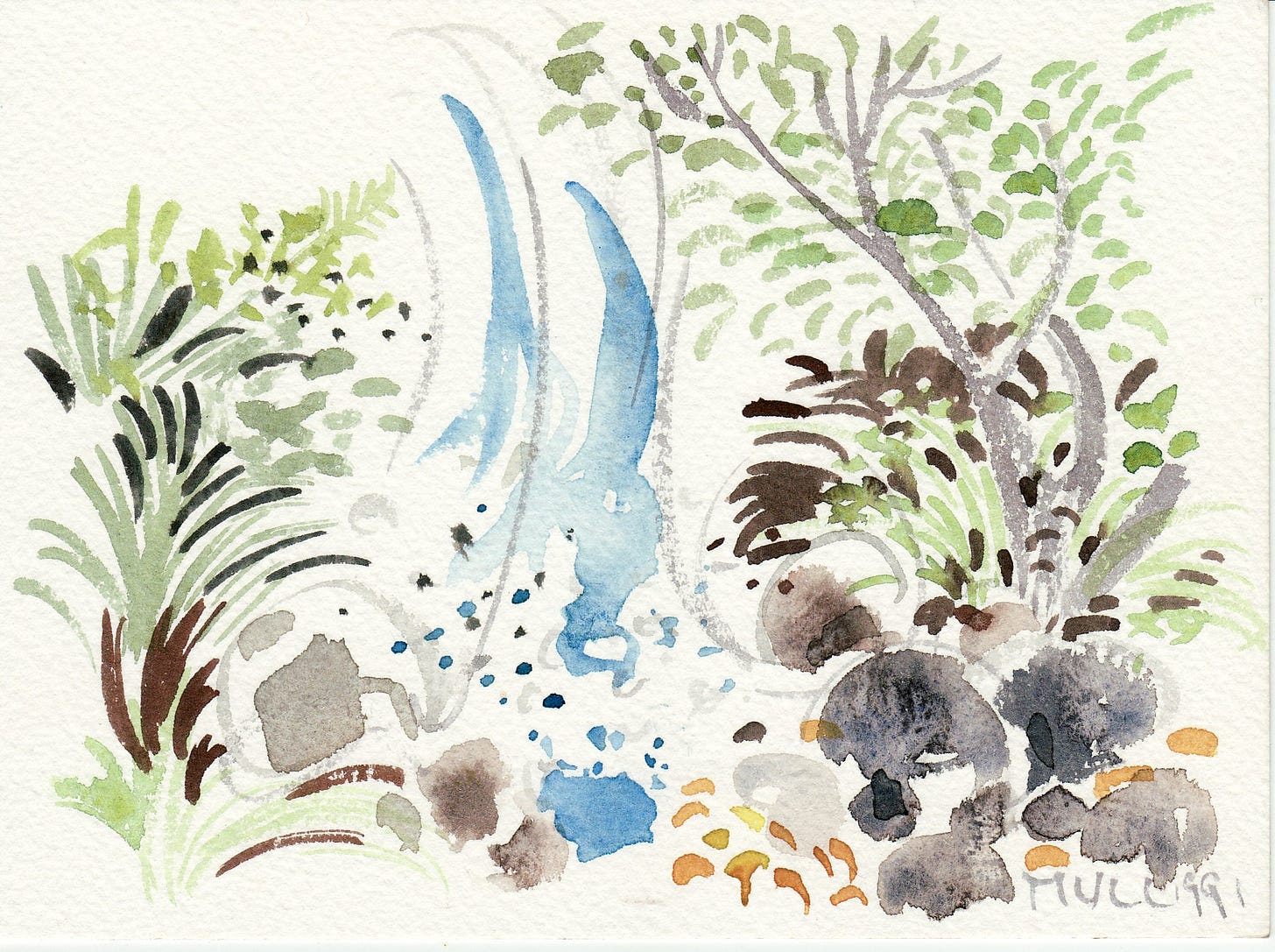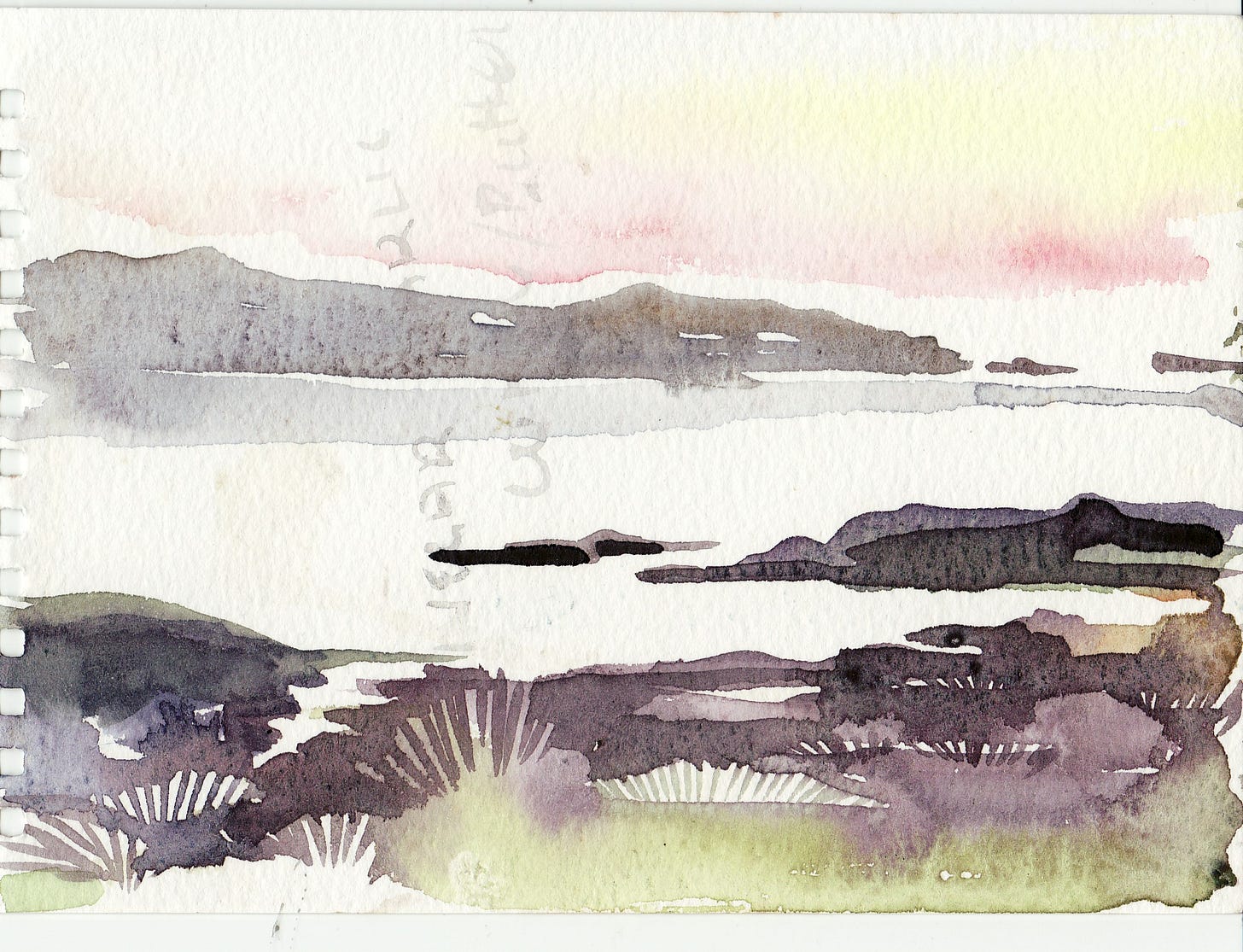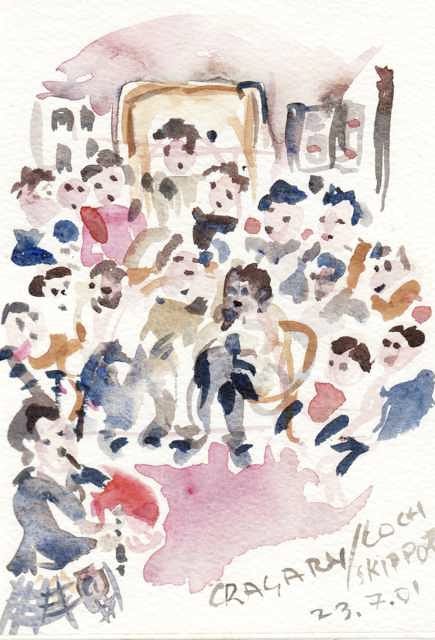Sometimes it's good to be reminded of good times with old friends as the year turns in autumn, and there's reason to remember how things were in the old days, way-back when. As it is for me when I was living for a time in a cottage on the island of Mull in the Hebrides, just off the west coast of Scotland, as a time in the late eighties and early nineties when I contributed a cookery column to The Scotsman, Edinburgh's national daily.
Mull, in those days, was the kind of place where everyone knew everyone, family ties were know and valued, and my husband Nicholas, novelist and travel-writer, had ancestral connections to the island through his grandmother, Flora McVean, daughter of the clan chief, a good man and well-remembered.
The cottage was remote, even by island standards. Our nearest neighbour, ten miles distant along a single-track road that followed the coast, was Chrissie McDonald. A crofter by right of inheritance, she had a caravan that sold scones and cakes to passers-by in summer - not just to the tourist-trade who'd stop for a bite and a cuppa, but locals too - including, as soon as I found out she was the best cook on the island - me.
Happily for my relationship with the readers of The Scotsman, Chrissie agreed to test my recipes for the paper - a useful failsafe, since not only could I be sue that the recipes worked, but the ingredients were available on her weekly shopping trip to the mainland. Which was why, when I was filming a thirteen-part tv series based on my first serious cookbook, European Peasant Cookery, Chrissie agreed to prepare a Cloutie Dumpling - a festive dish prepared in much the same way as an oven-baked fruit cake, but boiled in a cloth. And since it’s a festive dish, there had to be a caillie, a gathering in the boathouse at Ulva Ferry, where Chrissie taught primary schoolchildren in Gaelic, an opportunity for sharing good food, stories and maybe a dram of whisky to accompany the telling.
Chrissie’s croft-house is set right by the road. The islanders like to keep in touch with everyone’s comings and goings. When Chrissie was at home, the door was always open, but if she was not at home, there was a broom across the gap. A croft is not in itself a dwelling, though there's usually a croft-house that comes with the package, but conveys the right to the use of a stretch of land sufficient to support a family, and runs from the shoreline to the high tops and includes inshore fishing rights and pasturage for sheep.
Chrissie married a man from Tiree, one of the outer islands for which Mull is the mainland, and settled down to keep house with her mother-in-law and start a family. Every island has its own history and its own way of living. Tiree is machair, fertile, windswept and bleak. The island is twelve miles long and three miles wide. Dairy and fishing are the main occupations. There was, in the old days, seaweed for the kelpers, itinerant workers, who built huge bonfires on the shore to burn the weed for fertiliser for English farmers, until the trade vanished in the 1850’s.
Chrissie remembers Tiree as a different place. “They live there as we did in the fifties, but they wouldn’t like to hear it said.”
Chrissie’s husband, a bosun in the merchant navy, died when the children were still young in an accident off the North African coast. The family was on holiday from Tiree on a visit to Mull when the preacher came down to find her in the shop at Dervaig, just round the headland from her father’s croft, and asked Chrissie up to the manse to give her the sorrowful news.
"I’m not the sort to lie down under such things. You have to get up and get with living. By this time my uncle had died without heirs, and my father was already widowed. So we moved in with their grandad, and I took over the running of the croft. It was a blessing, really, for both of us, if you can see it that way."
Chrissie was born in Salen on the far side of the island rather than in the crofthouse. After she was widowed with two young children, as a qualified psychiatric nurse, she could certainly have made a good living on the mainland, island-life with its long history and the responsibilities she felt towards her own crofting community, suited her well.
Until very recent times it was not permissable, for reasons of respectability rather than outright prohibition, to speak Gaelic, wear the kilt or play the bagpipes. This had been so on the island since the ‘45, when the Scots were defeated by the English at the battle of Culloden.
Islanders don’t forget. Memories of famine after the potato blight in the 1880’s were triggered by testing a recipe for a polenta and lemon cake from a River Cafe cookbook that reminded everyone of the puffers, steam-boats, that came round the islands with cornmeal from Italy as famine-relief.
And Chrissie herself never made girdle scones - an old-fashioned top-heat situation - because the family had had a baking oven since the 1920’s. A recipe, suitably autumnal, for apple pancakes, brought tales of apple-trees seeded round the island when a galleon from the Spanish Armanda was wrecked on the cliffs in 1588.
While Chrissie was well-known for her culinary skills, discussion of a traditional recipe such as Cloutie Dumpling brought immediate consultation with The Bible, Maron McNeil’s The Scots Kitchen, a culinary manual first published in 1929 that might or might not have been a collaboration with novelist Sir Walter Scott. Not that Chrissie ever needed to follow the recipe, but the written word had authenticity that the spoken word did not.
p.s: The full Mull episode can be found on The Rich Tradition at https://www.talkingoffood.com
p.p.s. Beloved paid subscribers - you know who you are! - will shortly be in receipt of a recipe for Chrissie’s cloutie dumpling and another for her oven-scones.











This is wonderful, Elisabeth. I shall listen to the full episode. Uist boasts the most delicious Michaelmas Struan and harvesting (wild?) carrots is woven in the folklore too. Gaelic is definitely making a come back with younger Gaels. I, as a non Gaelic speaker, supporting a GP providing a lifeline service to an Island, am ambivalent... Gaelic can at times be exclusive. Love your substacks. Go, Elisabeth, go.